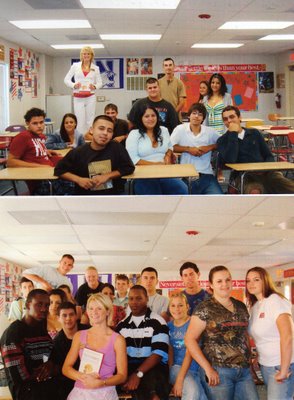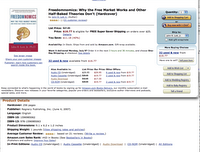Is the "high price" of everything from coffee in restaurants to popcorn in movie theaters due to monopoly power?
Prices for goods such as blades for razors, ink for printers and concessions at movies are often set well above cost. This paper empirically analyzes concession sales data from a chain of Spanish theaters to demonstrate that high prices on concessions reflect a profitable price discrimination strategy often referred to as metering price discrimination. Concessions are found to be purchased in greater amounts by customers that place greater value on attending the theater. In other words, the intensity of demand for admission is metered by concession sales. This implies that while some consumers' surplus may be reduced by the high concession prices, surplus of other consumers on the margin of attending may increase from theaters' decisions to shift their margins away from movies and toward concessions.
First as a side note, most theaters, at least in the US, do not prevent people from bringing in concessions with them to the theater (I don't know about Spain), and that is at least inconsistent with the monopoly type story. It is also interesting to note that these claims about above marginal cost pricing are made for many similar product such as wine in restaurants or coffee or the differences between lunch and dinner prices, and it is hard to believe that monopoly power actually explains the "high prices" in all these cases. Russell Roberts and I provided a cost based explanation for all the phenomenon back in 1991 here. I guess that my biggest question is what else would one expect relating the log(concession revenue) with log(attendance) and Box Office revenue per attendee. Concession revenue goes up with attendance (though at a lower rate than attendance revenue -- congestion) and it goes up with box office revenue per attendee (presumably picking up the fact that higher revenue per attendee means fewer old people and very young people). What is the problem here and why is price discrimination the only answer here? By the way, when they run a regression that includes information on the number of screens and seats per screen (Table 2, specification 2), those two variables really explain all the variation in popcorn prices (something akin to the hypothesis that Russell and I advanced). I am also not clear why logs are used for concession revenue and attendance, but not box office revenue per attendee.
Labels: Economics, Freedomnomics










